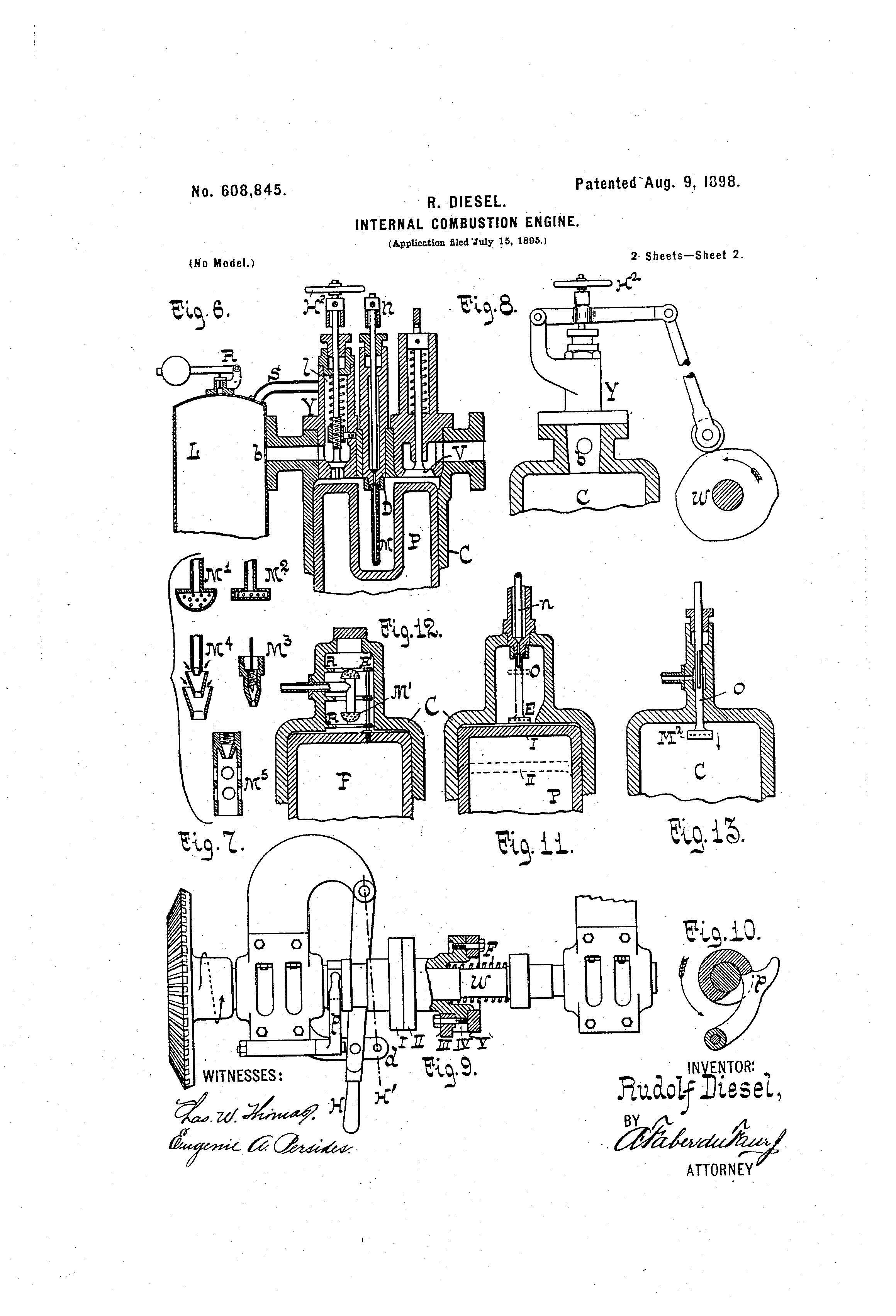On August 9, 1898, Rudolf Diesel was granted U.S. Patent No. 608,845A, for his “INTERNAL COMBUSTION ENGINE.”
Rudolf Diesel, who is best known for the invention that bears his name, was born in Paris, France in 1858.
In 1885, Diesel wanted to build a better, more efficient engine that could help independent artisans, entrepreneurs, and smaller businesses compete with larger industries who predominately used expensive steam engines for power at the time. Eight years later, Diesel’s model ran on its own power for the first time. Throughout the 1890s, Diesel received several patents for his invention of the efficient, pressure-ignited heat engine, and by 1898, he was granted U.S. patent #608,845A for his internal combustion engine.
Although one of Diesel’s main goals was to make energy more efficient and affordable for smaller businesses to compete with bigger companies, industrialists also embraced his invention quickly, which helped spur the Industrial Revolution’s rapid development. Following his death, diesel internal combustion engines became common in automobiles, trucks, ships, trains, and more. The diesel engines of today are refined and improved versions of Rudolf Diesel’s original concept.

